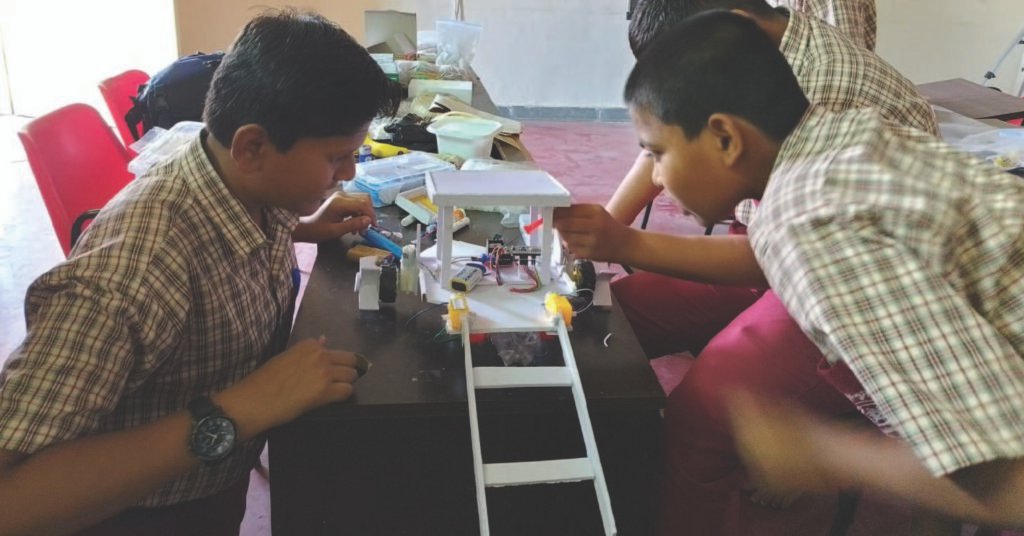Science, Technology, Engineering, and Mathematics, or STEM, has become more significant today. It addresses the pressing demand for highly trained workers in sectors of the economy that are key to technological advancement, innovation, and growth. Students who receive a STEM education are better equipped to handle challenging situations, keep up with the latest technological advancements, and advance society.
STEM education is an all-encompassing approach that integrates STEM subjects—science, technology, engineering, and mathematics—into a coherent framework from an educational standpoint. It tries to foster important skills like creativity, problem-solving, and analytical thought to prepare individuals for the challenges of the modern world. STEM education enables an interdisciplinary viewpoint and encourages the use of these skills in a range of fields. In addition to imparting topic information, a well-designed and interconnected learning experience fosters flexibility, creativity, and a proactive approach to handling real-world scenarios in learners.
STEM education also promotes a mindset that views technology as a tool rather than submissively accepting it. It helps individuals understand and use modern technology, enabling them to shape and apply it for their own profit and benefit companies and society.
A Paradigm Shift in Education
Traditional teaching methods have often neglected critical skills such as problem-solving and creativity. STEM education breaks this norm by encouraging hands-on learning, inquiry and experimentation that foster essential skills for today’s challenges.
The role of STEM in Skill Development
The development of crucial skills necessary for success in contemporary jobs is greatly aided by STEM education. It develops people’s capacity for problem-solving, critical thinking, and technological competence, giving them the tools they need to succeed in the workplace.
Critical Thinking:
STEM promotes critical thinking by encouraging students to question, analyse, and evaluate information and instilling systematic and logical approaches to problem-solving.
Creativity and innovation:
STEM environments foster creativity and foster concrete thinking and innovation, which is necessary in a rapidly evolving technological world. Collaboration: Team-based STEM projects develop collaborative skills by emphasizing teamwork, communication and collective problem-solving, mirroring real-world workplace dynamics.
Collaboration:
Team-based STEM projects cultivate collaboration skills, emphasizing teamwork, communication, and collective problem-solving, mirroring real-world workplace dynamics.
Hands-On Learning:
STEM programs aggressively promote hands-on learning. This includes giving students and researchers access to cutting-edge facilities, equipment, and technology. Individuals gain practical insights into scientific topics and engineering principles via hands-on experimentation. They learn not only from textbooks but also through actively participating in their study materials and activities.
Data literacy:
In the digital age, data is invaluable. Programs in STEM emphasize the need to develop data literacy skills. This entails teaching individuals how to properly collect, analyse, and interpret data. They get the ability to see patterns and draw insightful conclusions. In many STEM fields, data literacy is essential for acquiring knowledge and fostering innovation in contexts where there is an abundance of data.
Programming and Coding:
It is crucial for several STEM disciplines. These skills allow people to create software, construct algorithms, and automate processes—all of which foster creativity and problem-solving skills.
Adaptability to Emerging Technologies:
Students enrolled in STEM degrees learn how to be flexible. They acknowledge that technology is advancing swiftly and that people need to be ready to learn new skills and methods.
India STEM Foundation: The goal of the is to cultivate these essential skills. To that aim, they provide initiatives including Sanrachna, Gyanoday, Anushikshan, and Robo Shiksha Kendra. Additionally, the organisation offers annual sponsorship for the WRO National Championship, which allows competitors to demonstrate their skills.
In a Nutshell, STEM education is vital for fostering skilled workers in tech-driven fields. It integrates subjects while nurturing problem-solving and creativity. By prioritizing practical learning and an innovative approach to technology, it prepares individuals for real-world challenges.This shift focuses on essential skills like critical thinking and collaboration, mirroring workplace dynamics. It encourages development in data literacy, programming, and adaptability to emerging tech. STEM equips individuals with the mindset and skills crucial for success in our fast-evolving, technology-centric world.




